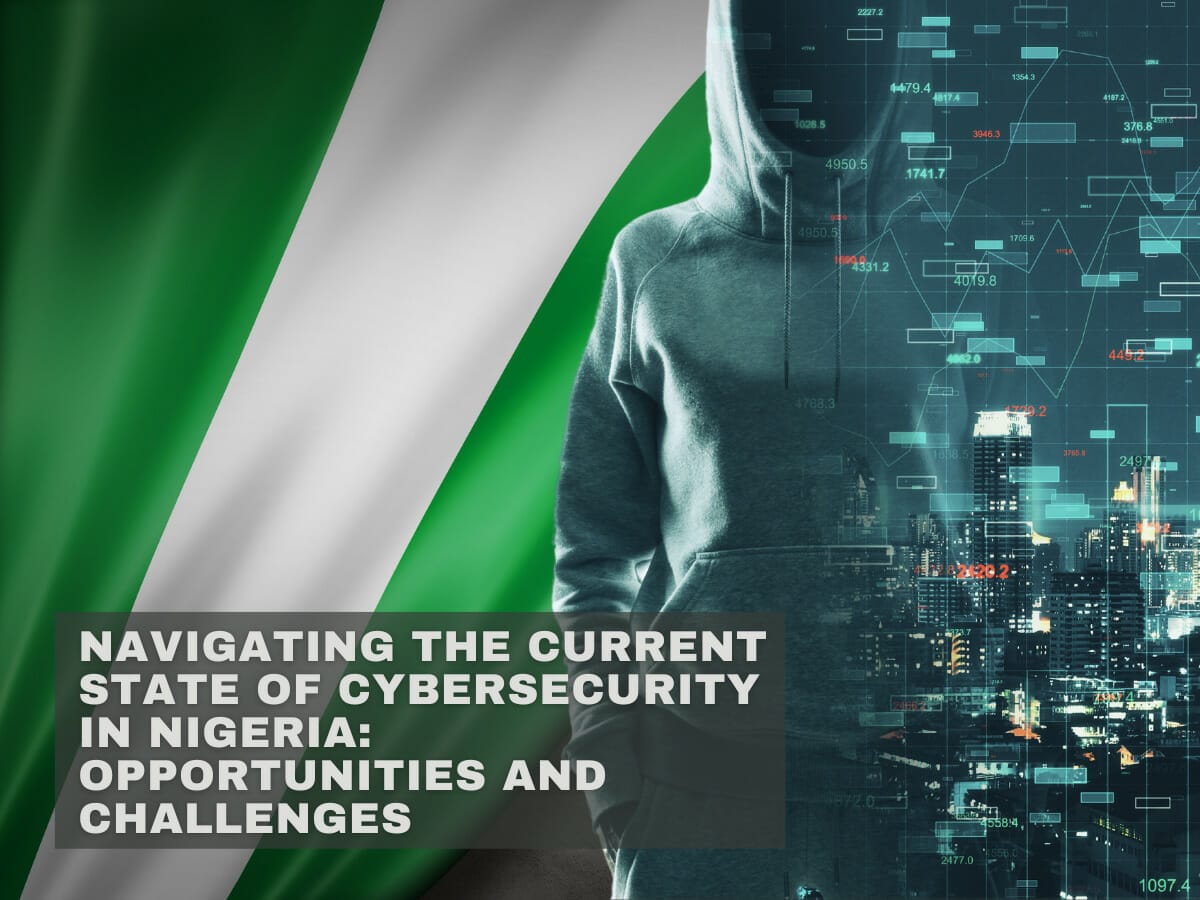As the world becomes increasingly digitised, cyber attacks have become more prevalent. Like many other countries, Nigeria has not been immune to these attacks. In this article, we will take a comprehensive look at cyber attacks in Nigeria, from their history and notable examples to how they could have been prevented. We will also examine the cybersecurity outlook in Nigeria, Nigerian hackers and their tactics, and the role of NCC-CSIRT and ngCERT in combating cyber attacks in Nigeria. Finally, we will discuss the need for a cyber security summit in Nigeria and the importance of cyber security in Nigeria’s digital future.
Introduction to Cyber Attacks in Nigeria
Cyber attacks in Nigeria are not a new phenomenon. They have been around for many years. However, with the recent surge in technology and the increasing number of internet users, cyber attacks have become more prevalent. Cyber attacks are a form of cybercrime that involves the use of the internet to commit crimes such as stealing personal information, hacking into systems, and spreading malware.
Nigeria has been a victim of cyber attacks for many years. In 2018, it was reported that Nigeria lost over $600 million to cybercrime. This is a significant amount of money, highlighting the severity of the problem in Nigeria. Cyber attacks have affected various sectors of the Nigerian economy, including healthcare, finance, and government.
History of Cyber Attacks in Nigeria with Notable Examples
Nigeria has a long history of cyber attacks. In 2016, it was reported that a group of Nigerian hackers known as “Gold Galleon” was responsible for a series of attacks on shipping companies. The group used phishing emails to trick employees into downloading malware, allowing them access to sensitive information.
In 2017, the WannaCry ransomware attack affected thousands of computers worldwide, including those in Nigeria. A group of North Korean hackers carried out the attack, and it affected various sectors of the Nigerian economy, including healthcare and finance.
Another notable cyber attack in Nigeria was the LIRS ransomware attack in 2019. Hackers targeted the Lagos State Internal Revenue Service (LIRS), demanding a ransom payment of $75,000 in Bitcoin. The attack affected the revenue service’s website and payment portal, highlighting government agencies’ vulnerability to cyber attacks.
How Cyber Attacks Could Have Been Prevented in Nigeria
Preventing cyber attacks in Nigeria requires a multi-pronged approach. One of the most critical steps is education. People must be aware of the risks and dangers of using the internet. They should be taught how to recognise phishing emails and other types of cyber attacks and protect their personal information.
Another critical step is the implementation of robust cybersecurity measures. Companies and government agencies should invest in cybersecurity technologies such as firewalls, antivirus software, and intrusion detection systems. They should also conduct regular vulnerability assessments and penetration testing to identify and mitigate potential vulnerabilities.
Finally, there is a need for more vital legislation and law enforcement. Cybercrime laws should be updated to reflect the changing nature of cyber attacks, and law enforcement agencies should be provided with the necessary resources to investigate and prosecute cybercriminals.
Cybersecurity Outlook in Nigeria
The cybersecurity outlook in Nigeria is mixed. While the Nigerian government has taken significant steps to address the problem, there is still a long way to go. The Nigerian Communications Commission (NCC) has established the Computer Security Incident Response Team (CSIRT) to coordinate the response to cyber attacks in Nigeria. In addition, the Nigeria Computer Emergency Response Team (ngCERT) has been established to provide advice and assistance to organisations affected by cyber attacks.
However, there are still significant challenges that need to be addressed. One of the biggest challenges is the lack of awareness among the Nigerian public about the risks associated with using the Internet. Many people are still unaware of the importance of cybersecurity, which puts them at risk of falling victim to cyber-attacks.
Nigerian Hackers and Their Tactics
Nigerian hackers are among the most notorious in the world. They are known for their sophisticated tactics and their ability to carry out attacks on a large scale. One of the most common tactics used by Nigerian hackers is phishing. This involves sending fraudulent emails that appear to be from legitimate sources, such as banks or government agencies. The emails contain links to fake websites designed to steal personal information.
Another tactic used by Nigerian hackers is malware. Malware is a type of software that is designed to damage or disable computer systems. Nigerian hackers use malware to access sensitive information, such as financial data and login credentials.
The Role of NCC-CSIRT and ngCERT in Combating Cyber Attacks in Nigeria
The NCC-CSIRT and ngCERT are vital in combating cyber attacks in Nigeria. They are responsible for coordinating the response to cyber-attacks and advising and assisting organisations affected by cyber attacks. They also play a role in raising awareness about the importance of cybersecurity and providing training to individuals and organisations.
The NCC-CSIRT and ngCERT have been successful in combating cyber attacks in Nigeria. They have helped to prevent numerous attacks and have provided valuable assistance to organisations that have been affected by cyber-attacks.
Case Study: LIRS Ransomware Attack
The LIRS ransomware attack in 2019 was a significant cyber attack in Nigeria. The attack affected the Lagos State Internal Revenue Service (LIRS), responsible for collecting taxes in Lagos State. The attack targeted the revenue service’s website and payment portal, and the hackers demanded a ransom payment of $75,000 in Bitcoin.
The attack highlighted the vulnerability of government agencies to cyber attacks and the importance of robust cybersecurity measures. It also demonstrated the effectiveness of the NCC-CSIRT and ngCERT in responding to cyber-attacks.
Case Study: SilentFade Attacks Nigeria
SilentFade is a group of Chinese hackers responsible for a series of cyber attacks in Nigeria. The group uses sophisticated tactics to access sensitive information, including financial data and login credentials. The attacks have targeted various sectors of the Nigerian economy, including finance and healthcare.
The SilentFade attacks highlight the global nature of cyber attacks and the need for international cooperation in combating cybercrime. They also demonstrate the need for more robust cybersecurity measures in Nigeria.
The Need for a Cyber Security Summit in Nigeria
There is a need for a cyber security summit in Nigeria to address the challenges associated with cyber attacks. The summit would bring together experts from various sectors to discuss the latest trends and best practices in cybersecurity. It would also provide an opportunity for collaboration and cooperation among stakeholders in the Nigerian cybersecurity ecosystem.
The summit would also help to raise awareness about the importance of cybersecurity and the risks associated with using the internet. It would provide a platform for discussion and debate on cybersecurity-related issues and help shape the future of cybersecurity in Nigeria.
Conclusion: The Importance of Cyber Security in Nigeria’s Digital Future
In conclusion, cyber attacks in Nigeria are a significant problem that requires immediate attention. The country has a long history of cyber attacks, and the problem only worsens. However, some steps can be taken to prevent cyber attacks and to mitigate their impact.
Education, robust cybersecurity measures, and stronger legislation and law enforcement are all essential steps that can be taken to prevent cyber attacks in Nigeria. The NCC-CSIRT and ngCERT play a vital role in combating cyber attacks in Nigeria, and there is a need for a cyber security summit to address the challenges associated with cyber attacks.
Ultimately, the importance of cyber security in Nigeria’s digital future cannot be overstated. As the country becomes increasingly digitised, the risks associated with cyber attacks will only increase. Steps must be taken now to prevent cyber attacks and to ensure that Nigeria’s digital future is secure.



